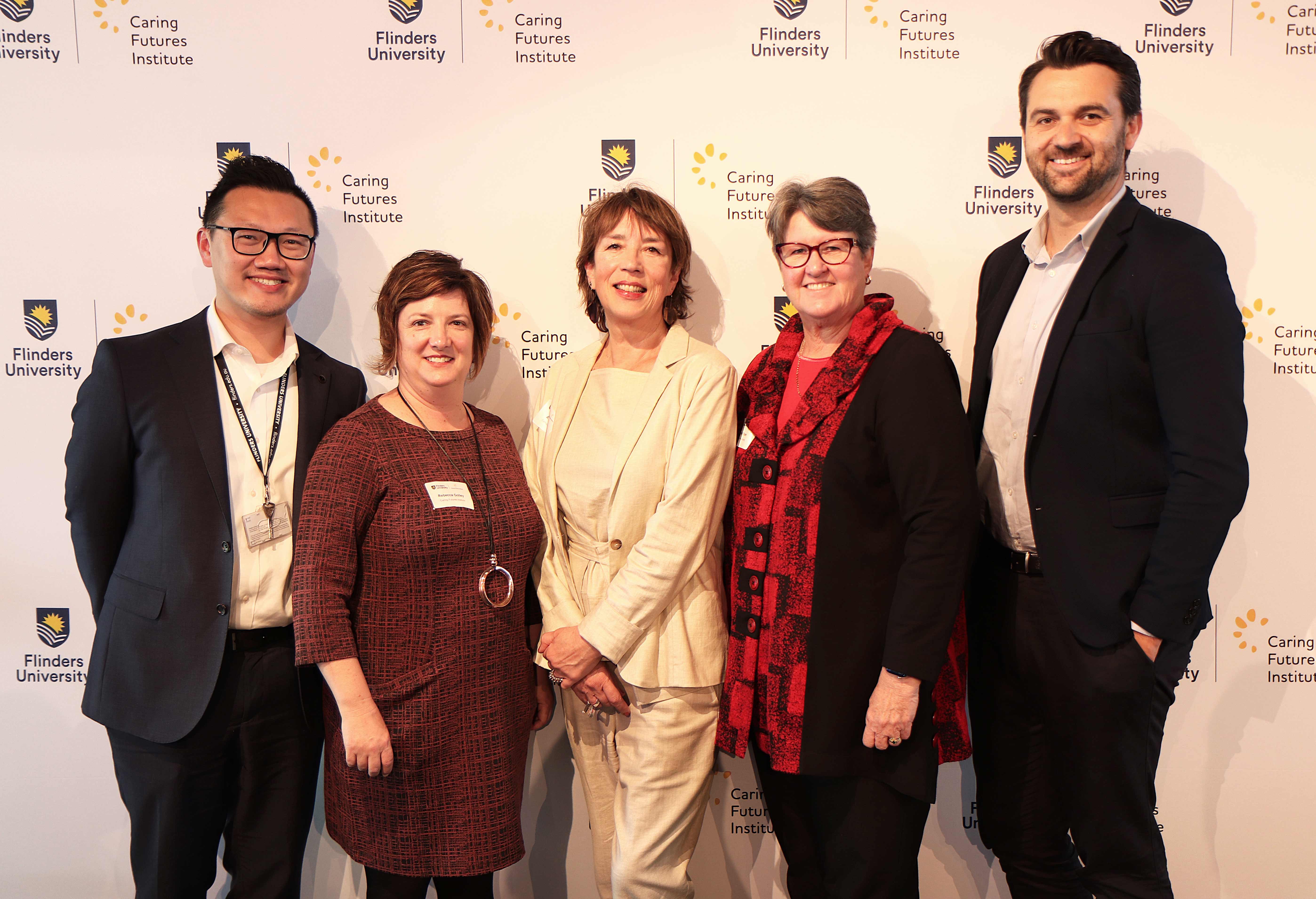
Transforming systems to deliver high-quality, person-centred, and integrated care across all stages of life is crucial.
The lack of value and visibility given to care within health, education, and social systems is a pressing problem. Care is everywhere yet often unnoticed until absent.
Older adults may experience fragmented services due to disconnected systems, workforce burn out, and lack of consumer agency, leading to poor health outcomes and reduced overall wellbeing. Equally, caregivers want the best for their children’s growth, health and development, but find the navigation of the range of touchpoints overwhelming and even stigmatising.
To address this critical issue, ‘Care Ambition 2030’ has brought together national leaders from health, education, and social care sectors to develop a position statement on the future of care in Australia. Professor Rebecca Golley, with Professor Alison Kitson, Professor Raymond Chan, Dr Michael Lawless, Dr Georgia Middleton and Ms Lucy Anastasi have been championing this important project.
Drawing on previous research from the Caring Futures Institute on fundamental care, including the International Learning Collaborative and the Caring Life Course Theory discussion paper, the project began with a content analysis of mission statements from health and social care websites across Australia. This analysis aimed to gain insights into the current landscape of health and social care, including care definitions, priorities and calls to action.
Subsequently, the Care Ambition 2030 National Forum saw the participation of 60 national leaders from various health, care and consumer organisations engage in three thought-provoking rounds of facilitated discussion, focusing on the perspectives of the care workforce, system, and consumers. The ideas from this Forum were put to stakeholders from health and social care organisations across Australia as part of a Delphi survey.
As a result, five ambition statements were generated, carrying the potential to transform health and social care in Australia over the next decade. Furthermore, Care Ambition 2030 has set in motion conversations among leaders in the care sector, driven by the shared purpose of implementing tangible actions and fostering revolutionary change.
Professor Golley emphasised that for the successful transformation of care systems, continued collaboration, and engagement among diverse stakeholders, including decision-makers, frontline health and care professionals, consumers with lived experience, research institutions, policy developers, and advocacy groups, are paramount.
“By continuing to work together, advocating for positive change, and implementing the ‘care compass’, we can deliver high-quality, person-centred and integrated care for a better future,” Professor Golley said.
The Institute aims to work toward a future where accessible high-quality health and care are available for all, addressing pressing care challenges, embracing technology for innovations, and fostering better lives and communities across the lifespan. The Care Ambition 2030 statements will not only provide the directions for future research activities within the Caring Futures Institute but also drive partnership activities.
The ambition statements can also serve as a ‘care compass’ as researchers from the Caring Futures Institute partner with stakeholders to drive change and within health, education, and social care systems.
Through this initiative, the Care Ambition 2030 project aims to create intentional learning health and care systems, promote compassion and wellness, and empower individuals and caregivers to achieve excellent, purposeful, valued, and visible care.
Professor Golley highlights that “we will draw upon the Care Ambition 2030 insights to shape our priorities, guide our research endeavours and strengthen our partnerships as we strive to achieve our goals.”
“The aim is to achieve excellent, purposeful, valued and visible care that meets the diverse needs of individuals across the lifespan.”
Professor Golley further stated, “The long-term impact of the project will be significant. It is hoped that partners and stakeholders will use the ambition statements to inform their strategic plans, policies, and advocacy efforts.”
The Care Ambition 2030 outputs – the Care Compass – will be made available in coming months, providing invaluable guidance and direction for transforming systems to deliver high-quality, person-centred, and integrated care across all stages of life.
Find out more:

